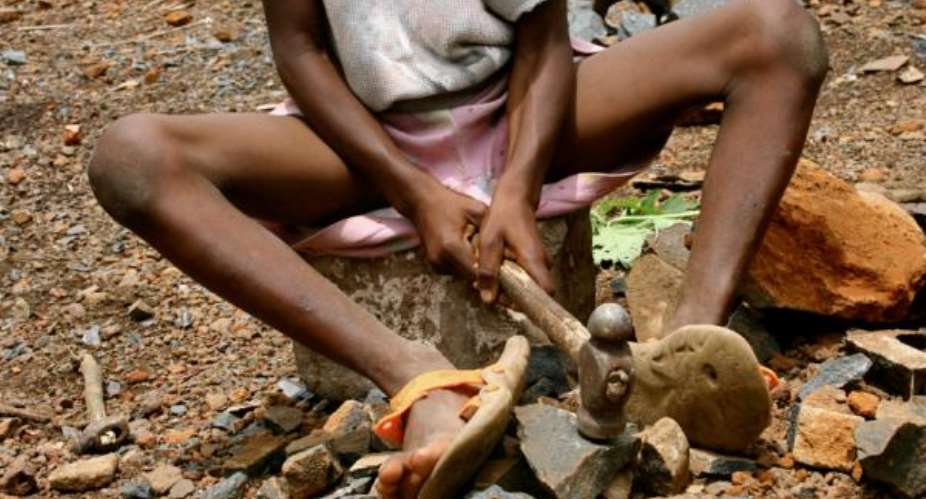Yesterday, the remains of John Lewis was laid to rest in a funeral eulogised by the US’ first black president Barack Obama, preceded by his two white predecessors, George Bush and Bill Clinton. It was also the World Day Against Trafficking in Persons (WDATP-Blue Heart Campaign) The significance of the coincidence is momentous as the matter of black lives calls for productive attention across the world and so too the lives and generations of the millions of children trafficked and trapped in child labour; 152 million globally, 74million in Africa and almost two million in Ghana, with thousands of children are engaged in child labour on cocoa farms.
John Roberts Lewis, born in February 1940, and originally a Baptist Preacher, served gallantly in the US House of Representatives for seventeen terms, from 1986 till he passed on, seventeenth July this year. In him, the reality of racism and its connection to slavery found an embodiment. He experienced the epitome of racism as one who was part of the leadership of the civil rights movement and a staunch advocate on nonviolent resistance against racism. His parents were sharecroppers in rural Pike County, Alabama.
Sharecropping is an old agricultural phenomenon that underpins the production of cocoa in the many small-holder farms in rural Ghana. It is when a land owner contracts a tenant to use the land in return of a share of the crops. In some cases, the sharecropper is the same as the caretaker. These are those most likely to engage children in acceptable work in order to have increased yields for a better share. Many of these sharecroppers are migrants who come to the cocoa zones from other areas, especially the north. Some take advantage of their large families to engage their own children as farm labourers. Others find means of getting other children from other sources including irregular migration and possibly outright trafficking where the children are recruited via syndicated mechanisms.
The horrors of these children are akin to both slavery and racism in many ways. In terms of slavery, many of them work without their volition. They don’t get to eat the fruit of their labour: many have never had a good bite of the chocolate for which their feeble bodies are put to work. Long hours of work, carrying heavy loads, no education, no love and care, no play, no childhood. Slavery-like conditions.in terms of racism, they are often discriminated against because they get the least attention and support.
What we need to do
Sharecroppers use children because of a number of fundamental issues: firstly, they are ignorant and negligent about the wellbeing of a vulnerable stage of the human lifecycle. This kind of negligence borders around moral depravity. It is compounded by the fair ignorance occasioned by their own poor childhood. They have grown with very little experiences of care, quality education, protection and development. in a sense, they are mere products of a vicious cycle of poverty, depravity and mediocrity. But the sharecroppers are not the only negligent ones. There are too many middle men between the chocolate eater and the labour cocoa farmer. These middlemen take a more than fair share of the gains made from the produce. There is little accountability in the cocoa supply chain. The pricing systems are not transparent. More seriously, efforts through project interventions have not had efficient quality control measures to enhance focus, diligence and consistency that will yield sustained desired results. If we increase political will, improve awareness raising targeted towards behavioural change, agree that sharecroppers also deserve better housing, adequate healthcare and enough resources to see their children achieve tertiary level education; and so remove the unnecessary middlemen that siphon the resources; perhaps we will be making better progress in shorter time.
By Emmanuel Kwame Mensah, a development consultant: [email protected]





 We’ll no longer tolerate your empty, unwarranted attacks – TUC blasts Prof Adei
We’ll no longer tolerate your empty, unwarranted attacks – TUC blasts Prof Adei
 Bawumia donates GHc200,000 to support Madina fire victims
Bawumia donates GHc200,000 to support Madina fire victims
 IMF to disburse US$360million third tranche to Ghana without creditors MoU
IMF to disburse US$360million third tranche to Ghana without creditors MoU
 Truck owner share insights into train collision incident
Truck owner share insights into train collision incident
 Paramount chief of Bassare Traditional Area passes on
Paramount chief of Bassare Traditional Area passes on
 Two teachers in court over alleged illegal possession of BECE papers
Two teachers in court over alleged illegal possession of BECE papers
 Sunyani: Victim allegedly shot by traditional warriors appeals for justice
Sunyani: Victim allegedly shot by traditional warriors appeals for justice
 Mahama vows to scrap teacher licensure exams, review Free SHS policy
Mahama vows to scrap teacher licensure exams, review Free SHS policy
 Government will replace burnt Madina shops with a new three-story, 120-store fac...
Government will replace burnt Madina shops with a new three-story, 120-store fac...
